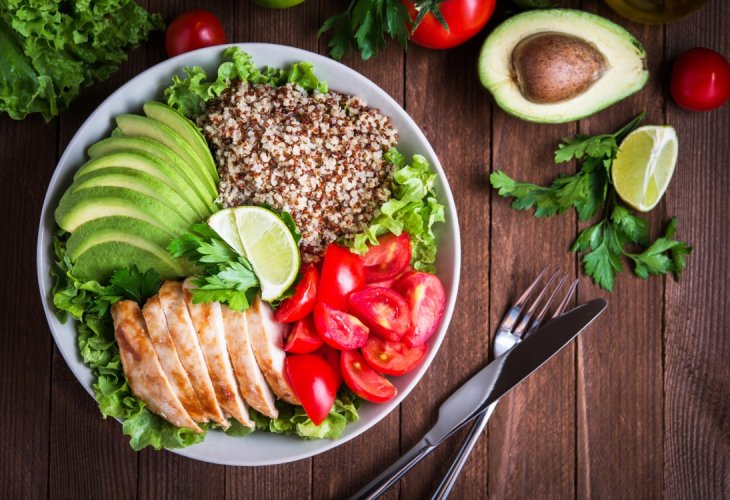Personality Development
Living with Intention: The Spiritual and Physical Responsibility for Health and Longevity
The power of choice: How daily habits and divine wisdom influence our health and lifespan.
 (Photo: shutterstock)
(Photo: shutterstock)Contrary to the simple belief held by those who accept the idea that people typically die at a preordained age, the Sages in the Jerusalem Talmud and Midrash reveal a startling perspective on what actually determines the timing of death: "Ninety-nine [die] through negligence, and only one by the hand of Heaven."
Although every person has their lifespan determined even before birth, just as all the personal tools they will need for their unique mission in life (such as wealth or poverty, health or illness, intelligence or simplicity) are set in place, humans still retain the power to influence their fate. As the Talmud states, “Everything is in the hands of Heaven except fear of Heaven.”
Through awe of Heaven- living with spiritual awareness and ethical conduct- a person can actually alter what was decreed for them. This is the meaning of the teaching, “There is no fate for Israel.” Unlike other nations, the Jewish people are not entirely bound by predetermined fate (mazal); instead, they can transform their reality through the 613 mitzvot, the tools given by G-d.
At the same time, a person’s free will gives them the ability to harm themselves, even to the point of shortening their life. The Sages go so far as to say that only one out of a hundred people actually dies at the age originally set for them; all the rest died prematurely because they failed to safeguard their health.
The Torah Mandate to Care for Your Health
This shocking insight places a great responsibility on each of us, to learn the foundations of health and apply them in daily life. The Torah verses “Only be very careful, and guard your soul diligently” and “You shall greatly guard your lives” are understood to include the command to care for our health and ensure a clean, healthy environment. The purpose is to extend life and provide more time to shape our character and refine our spiritual world.
As explained in the book The Code, based on the teachings of the Ramchal (Derech Hashem), life in this world is the period of labor- the time for the soul to develop and rise through the proper use of the physical body. The body, with its urges, serves as a kind of spiritual "fitness machine." Every time we resist a temptation or choose to do a mitzvah, we strengthen and build our soul for eternity.
Four Pillars of Physical Health
To maintain health, one must focus on four key areas:
The quality of substances entering the body, which determine how the body is built and functions.
The quantity of food consumed, which must match the body’s digestive capacity.
Cleansing the body of accumulated waste and toxins.
Physical exertion, involving full-body muscle activity.
Clean, fresh air is also essential, while polluted air from cigarette smoke, chemical emissions, and vehicle exhaust can cause irreversible harm and reduce lifespan.
It’s also worth emphasizing that a joyful, emotionally healthy soul is crucial to physical well-being. (This topic is covered in more depth in a dedicated chapter.)
The following sections will expand on each of these four essential principles from the perspective of responsible, natural effort that lies within our hands.
Principle 1: Be Mindful of What Enters Your Body
Our body’s cells are constantly regenerating using the raw materials we ingest. Logically, healthy and high-quality food builds a strong body, while poor-quality food weakens it. Much of today’s industrial food is filled with harmful fats that can clog arteries and lead to serious illnesses.
Some artificial additives in food even alter how cells function, sometimes contributing to the development of tumors.
We must therefore prioritize natural foods- the gifts G-d lovingly provided- and avoid heavily processed industrial foods created mainly for profit.
Two Core Guidelines for Choosing Food:
A. Balanced Variety: Include all essential nutrients: carbohydrates, proteins, fats, vitamins, and minerals. Whole grains and fresh vegetables are ideal because their natural health value remains intact. These are preferable over refined foods such as white flour products and canned vegetables.
B. Avoid Harmful Additives: Minimize or avoid artificial colorings, preservatives, trans fats like margarine, high-cholesterol meats, and excessive sugar and salt- all of which are overly common in modern diets.
What Should a Healthy Daily Menu Include?
A well-rounded meal should provide both the “building blocks” and the “fuel” the body needs:
Carbohydrates – bread, potatoes, rice, etc.
Proteins – chickpeas, beans, fish, chicken, or meat.
Healthy Fats – especially cold-pressed olive oil.
Note on Oil Types: Cold-pressed oils (like extra virgin olive oil) are extracted at low temperatures without chemicals, preserving nutrients and flavor. Hot-pressed oils, which use heat and solvents, degrade the oil's quality and health benefits. Sometimes, you don’t need to add oil at all- foods like avocado and nuts already contain natural, healthy fats.
Vitamins and Minerals – found in abundance in fresh fruits and vegetables.

